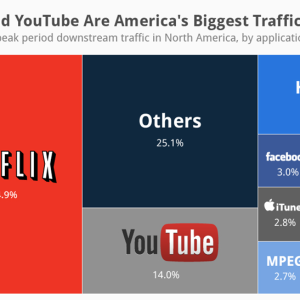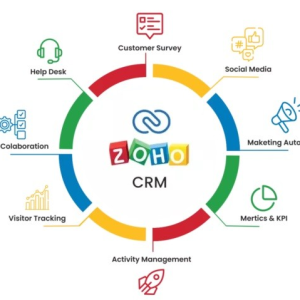Introduction
49% of marketers report that organic search has the best ROI of any marketing channel
(Search Engine Journal)
The one thing that always seems to get SEOs arguing is anchor text in SEO. They’ll argue about ideal ratios and penalties, but most of it doesn’t exist – at least not in any concrete form you can point to with solid data collection methods!
Anchor text in SEO is one of the most important aspects of marketing. When used correctly, it can help to improve your website’s ranking on search engines. In this article, you will learn all about anchor text-what it is, how to use it, and some of the best practices for doing so.
What Is An Anchor Text In SEO?

For the uninitiated in the domain of search engine optimization, the question may arise: what is anchor text in SEO? In simple terms, anchor text is the clickable fragment of a hyperlink, a mere textual embodiment that, when activated, propels one to another web location.
Consider, for instance, the sentence “I love cats,” where the word “cats” becomes the anchor text in SEO. Were that sentence transformed into a hyperlink, clicking the anchor text “cats” would transport you to another web page or website that expounds on the feline world.
In HTML, anchor text in SEO takes on the following form:
<a href=”https://example.com”>This is an example of anchor text in SEO</a>. It’s evident that the anchor text is the fragment that proclaims “This is an example of anchor text in SEO.”
The significance of anchor text in SEO stems from its ability to enable search engines to comprehend the gist of your website. When search engines encounter anchor text that encompasses pertinent keywords relative to your website, it can bolster your website’s ranking for those keywords. In essence, anchor text acts as a liaison, linking your website to the broader online community.
How To Use Anchor Text In SEO
Now that the concept of anchor text in SEO has been firmly established, a legitimate query that may arise is how to harness its power. The answer, in fact, is astoundingly uncomplicated: ensure that your anchor text in SEO incorporates keywords that align with your website’s raison d’être.
Consider, for instance, a website that expounds on the feline world. In that case, it would behoove the website owner to utilize anchor text that contains keywords such as “cats,” “kittens,” and “felines.”
It’s vital to bear in mind that stuffing your anchor text with an excessive number of keywords is ill-advised. Not only does it render your website susceptible to being labeled as spam, but it can also negatively impact your website’s ranking. Instead, focus on integrating a handful of pertinent keywords into your anchor text, allowing it to function as a beacon that guides search engines towards your website’s thematic terrain.
How Does Anchor Text In SEO Impact Search Engine?
The internet is full of spammy content, so it’s important to use anchor text in SEO wisely. If you stuff your anchors with too many keywords and start getting penalized by Google for being deemed “spam,” then this could result in less traffic from search engines which would have an adverse effect on the success rate if any at all!

The effective utilization of anchor text is a crucial factor when it comes to improving your website’s search engine optimization (SEO) ranking.
Here are some tips for using anchor text effectively to improve your website’s SEO:
1. Use keyword-rich anchor text.
To optimize your website’s SEO, using keyword-rich anchor text is essential. Including the targeted keyword in the anchor text helps search engines comprehend the topic of your website, and subsequently, rank it accordingly.
2. Use diverse anchor text.
But, simply repeating the same anchor text can be detrimental, and lead to a potential penalty from Google. It’s imperative to diversify the anchor text by using various keywords and phrases, including brand names or naked URLs.
3. Use brand names and naked URLs.
Incorporating your brand name or a URL (also known as a naked URL) into your anchor text constitutes a superlative approach towards heightening brand recognition and augmenting your website’s search engine optimization (SEO).
4. Use natural language.
When creating your anchor text in SEO, make sure it sounds natural. Don’t force keywords into your anchor text where they don’t belong. Not only will this look spammy to Google, but it will also be confusing for users.
5. Use relevant keywords.
It is of paramount importance to ensure that the anchor text reads effortlessly and does not appear contrived or artificial in any way. It is therefore essential to cherry-pick keywords that are both relevant and carry high search volumes.
6. Use long-tail keywords.
For maximum efficiency in targeting your keywords, it is highly recommended to focus your efforts on utilizing long-tail keywords. These longer and more granular versions of your target keywords possess a level of specificity and precision that their shorter and more broad counterparts can only dream of. As a direct result of their nuanced nature, long-tail keywords typically face lower levels of competition, thus granting you the opportunity to soar up the rankings with relative ease.
7. Use LSI keywords.
A further tactic that can serve to elevate your ranking potential to new heights is the deft implementation of LSI keywords. In stark contrast to their exact synonym counterparts, LSI keywords operate in the space of relevance and association to your main keyword. By utilizing these relevant and complementary keywords, you can amplify both the relevance and depth of your content, a surefire path to the top of the rankings.
8. Use location-based keywords.
If targeting a local audience, incorporating location-based keywords such as “New York plumber” or “San Francisco dentist” can be a game-changer.
9. Use modifiers.
As an added tip, it is worth noting that the inclusion of strategic modifiers can have a monumental impact on the success of your keyword targeting efforts. Terms such as “best,” “top,” and “quality” have the ability to imbue a word with a new level of significance and meaning, enabling you to contend for keywords that may have otherwise been deemed too competitive or elusive. By incorporating these powerful modifiers into your keyword strategy, you can unlock a new world of possibilities and propel your content to the top of the rankings.
10. Use negative keywords.
Negative keywords, as their name implies, are words or phrases that you explicitly eschew from ranking for. For instance, if you specialize in selling women’s clothing, you would indubitably deem it disadvantageous to rank for “men’s clothing.” By integrating negative keywords into your anchor text, you can furnish Google with a comprehensive understanding of your website’s modus operandi and forestall it from ranking for erroneous keywords.
In summary, anchor text can significantly impact your website’s SEO. The key is to use relevant keywords, mix up your anchor text, and include brand names and URLs to build awareness and improve ranking. Don’t forget to use modifiers, negative keywords, and location-based keywords to optimize your anchor text strategy.
Why Is Anchor Text In SEO Important?
Anchor text, a crucial aspect of SEO marketing, plays a paramount role in conveying your website’s intent to search engines. By incorporating pertinent keywords in your anchor text, you can enhance your website’s ranking for those specific keywords. Moreover, a diverse array of anchor text in SEO can bolster your website’s ranking for multiple keywords, culminating in a higher search engine ranking.
Consider a hypothetical scenario where two websites are in competition with each other – one implementing a robust anchor text strategy, while the other fails to do so. The website that employs an anchor text strategy will inevitably triumph and earn a higher search engine ranking, owing to the fact that anchor text in SEO provides search engines with a clear indication of the website’s essence, rendering it easier for Google to comprehend and index the website correctly.
Undoubtedly, Google employs numerous factors to determine a website’s ranking, and the anchor text remains a paramount one. If you intend to bolster your website’s SEO ranking, it is imperative to incorporate the aforementioned tips in your anchor text strategy and diversify your anchor text to steer clear of any possible penalties. Lastly, including brand names and URLs in your anchor text can effectively improve brand recognition and website ranking.
What Makes A Good Anchor Text In SEO?
Everything mentioned above makes a good anchor text in SEO but there are a few other things you should keep in mind because Google is constantly changing its algorithm.
Here are a few more tips:
1. Vary your anchor text.
Don’t use the same anchor text over and over again. This looks spammy to Google and you could be penalized for it. Instead, mix up your anchor text with relevant keywords, brand names, and URLs.
2. Don’t stuff keywords.
One of the cardinal rules of effective content writing pertains to the restriction of overindulgence in keyword usage. Specifically, the practice of “keyword stuffing” involves the cramming of a superfluous number of keywords into one’s anchor text, thereby creating a spammy impression and incurring the wrath of Google in terms of lowered website rankings.
3. Don’t use exact match keywords.
Additionally, the utilization of “exact match keywords,” or those identical to the very keywords a writer is attempting to rank for, is similarly frowned upon. As an example, if one were attempting to achieve a high ranking for the keyword “plumber,” one should avoid using the anchor text “plumber” itself, as this strategy would also appear spammy to Google, and potentially result in penalization.
4. Do use partial match keywords.
Partial match keywords are when you use a portion of the keyword you’re trying to rank for in your anchor text. For example, if you’re trying to rank for the keyword “plumber,” you could use the anchor text “plumbers in NYC.” This is likely to look more natural to Google than superfluous and helps you to avoid penalities.
5. Keep it NATURAL.
We repeat, “KEEP IT NATURAL”. The most important thing to keep in mind is to keep your anchor text natural. Google can tell when you’re trying to game the system and you will be penalized for it. So just use relevant keywords, brand names, and URLs in a way that sounds natural.
Look at it this way: If you are a plumber in New York City, and someone is looking for a plumber in New York City, you want your website to come up. So using the anchor text “plumbers in NYC” makes sense. But if you’re trying to rank for the keyword “plumbing,” and you use the anchor text “Kohler toilets,” that looks spammy to Google and you will be penalized.
Different Types Of Anchor Text In SEO
Anchor text is a highly crucial factor when it comes to building a robust SEO strategy. There are various types of anchor text, each with its unique benefits and challenges.
1. Branded Anchor Text
Brand awareness is vital in today’s digital age. One way to enhance it is by leveraging branded anchor text. This technique involves using your brand name as the anchor text. By doing so, you can boost your website’s ranking for your brand name. Consider a hypothetical website about canines; “Masons Dogs” could be the anchor text to link to your website, and there you have it!
2. URL Anchor Text
Another way to improve your website’s ranking and generate brand awareness is by using URL anchor text. This approach involves using your website’s URL as the anchor text. For instance, if you have a website about canines, using “www.masonsdogs.com” as the anchor text could do wonders in boosting your website’s ranking for your URL.
3. Keyword Anchor Text
To ascend the ranks of search engines, utilizing keyword anchor text is a strategic move. This approach involves using a keyword or phrase as the anchor text to improve your website’s ranking for that particular keyword. Picture a scenario where you own a website about canines, and you use “best dog food” as the anchor text – this can significantly enhance your website’s ranking for the keyword “best dog food.”
4. Generic Anchor Text
Building website awareness and boosting its ranking for general keywords can be achieved through the use of generic anchor text. This method involves using a general word or phrase, such as “click here,” as the anchor text. The benefits of this technique are plentiful, as it can effectively raise awareness of your website and improve its ranking for general keywords.
5. Image Anchor Text
Finally, another significant anchor text approach is image anchor text. In this technique, you use an image as the anchor text, which can improve your website’s ranking for the keyword or phrase that the image is optimized for. A vivid example of this approach is using a picture of a dog with the anchor text “best dog food” to link to your website about dogs.
To optimize your website’s SEO, using a mixed approach to the various types of anchor text is the ultimate strategy. By leveraging branded, URL, keyword, generic, and image anchor text, you can exponentially enhance your website’s ranking and build awareness. Therefore, the key to an outstanding SEO strategy is to use a combination of these anchor text techniques.
Common FAQs On Anchor Text in SEO
1. What is the best way to use anchor text in SEO?
When it comes to using anchor text effectively in SEO, it requires a high level of skill and expertise to achieve the desired outcomes. The key to success is to use a diverse range of anchor text types, such as branded, URL, keyword, generic, and image anchors, to approach SEO. However, it is crucial to maintain a natural balance between them to avoid Google’s suspicion.
2. How many times should I use anchor text?
Finding the right balance in the frequency of using anchor text is a tightrope walk that must be approached with caution. Overusing or underusing it can have dire consequences, and as such, it should be used in moderation. Anchor text frequency should be determined by what makes sense in the context of the content, striking a balance between natural use and strategic optimization.
3. What are some common mistakes people make with anchor text?
In the SEO realm, errors with anchor text are all too frequent. Common missteps include overusing the same type of anchor text, excessively stuffing anchor text with keywords, and using irrelevant or off-topic anchor text. To avoid these blunders, it is essential to comprehend the complexities of anchor text and its impact on SEO, along with a keen eye for detail and precision.
4. How can I use anchor text to improve my website’s SEO?
Leveraging anchor text to improve your website’s SEO requires a delicate balance of using relevant keywords, brand names, and URLs in a way that appears organic and authentic to Google’s algorithm. This feat requires a thorough grasp of perplexity and burstiness and a masterful command of the art of SEO. It is a skill that must be honed through experience and experimentation to achieve optimal results.
5. Is there any other method to use apart from anchor text to improve my website’s SEO?
There are many other methods you can use to improve your website’s SEO. However, anchor text is one of the most important and inevitable strategies.
Conclusion
Improving your website’s ranking on search engines necessitates meticulous attention to your anchor text in SEO, a crucial aspect that can significantly impact your website’s SEO ranking. Incorporating natural-looking anchor text that is both relevant and diverse can work wonders for your website’s SEO ranking. However, overdoing it could result in severe penalties, thereby rendering your efforts null and void.
Alternatively, outsourcing your SEO efforts to a reputable agency could be an astute decision. A top-notch agency such as 12 Channels, equipped with a seasoned team of SEO experts, can deftly assist you in your endeavor to enhance your website’s ranking on search engines and drive more traffic to your website. Don’t hesitate to reach out to us today to gain comprehensive insight into our services and take a step towards securing your website’s success!

























